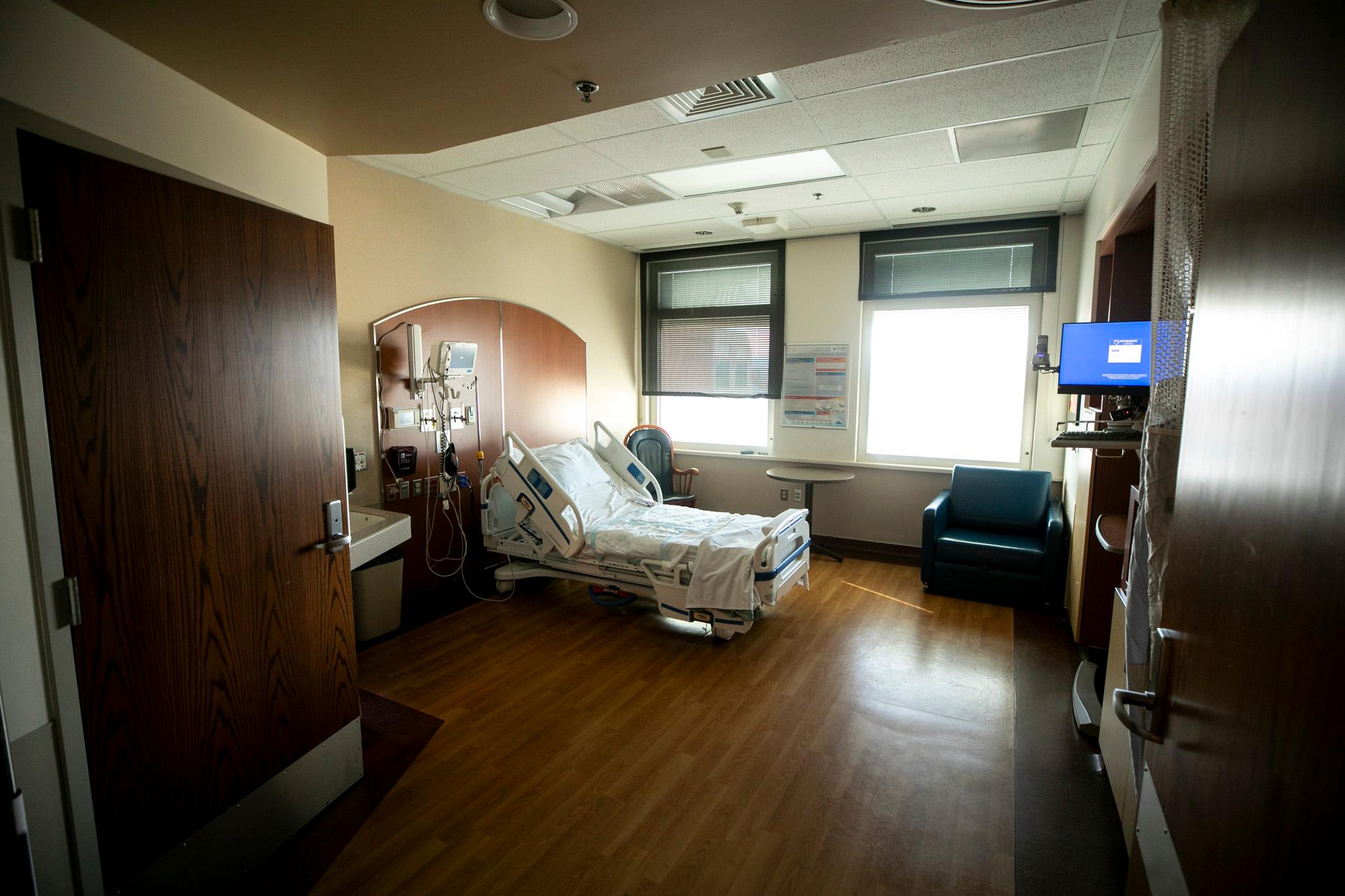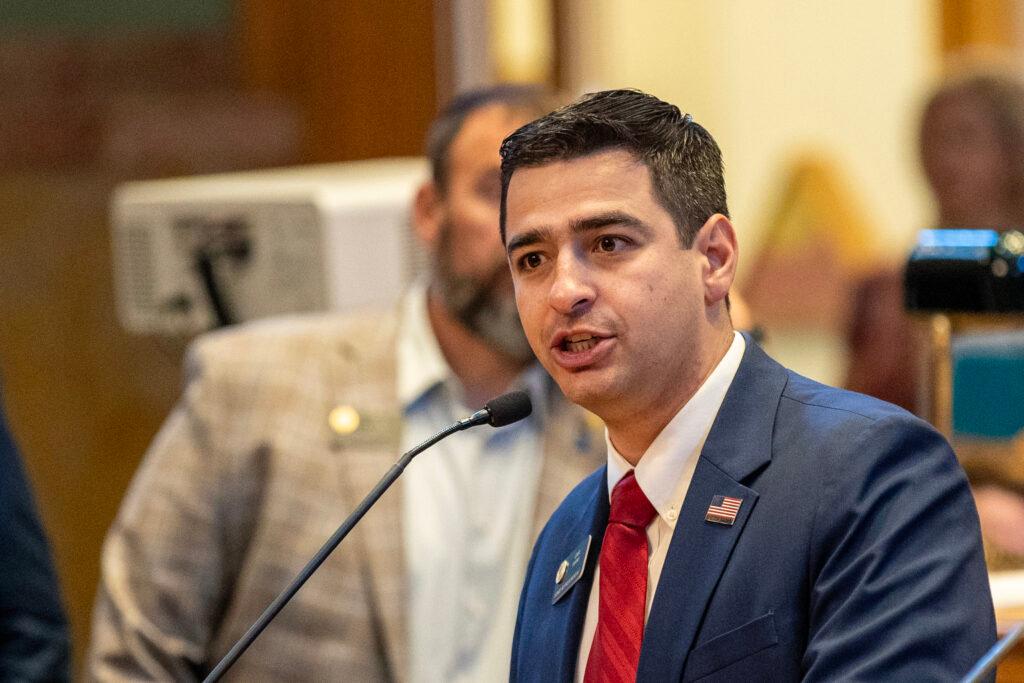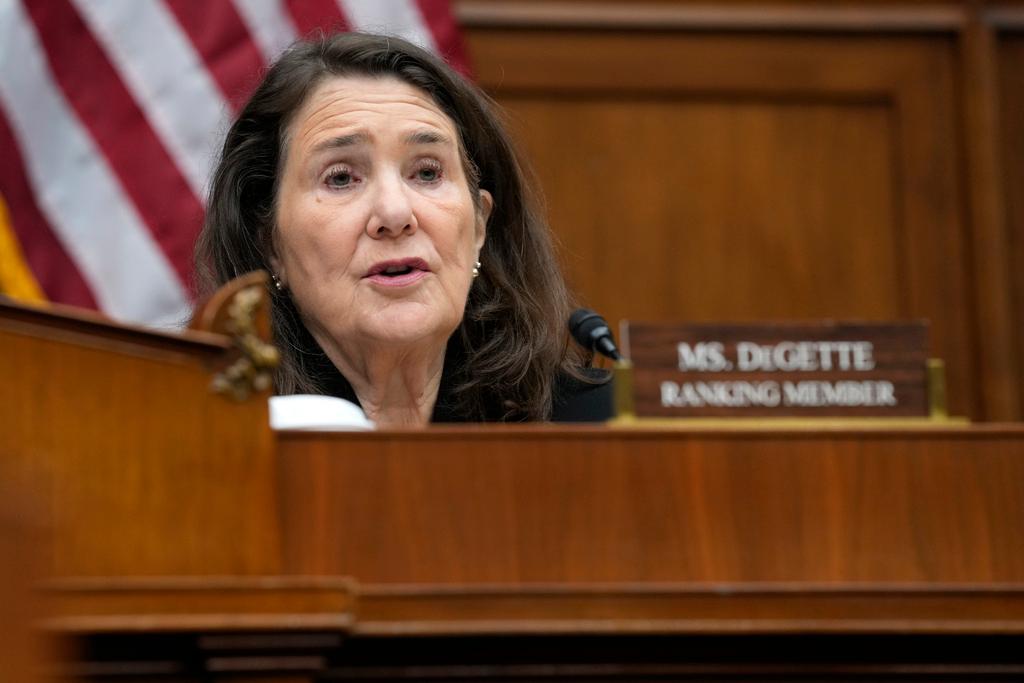
Colorado’s two members on the House Energy and Commerce committee took different views and votes on the changes Republicans are proposing for Medicaid as the party looks for cuts to fund its budget reconciliation package.
Republican Rep. Gabe Evans voted with his party to advance the changes to the federal health insurance program for children and low-income people, while Democratic Rep. Diana DeGette voted against it. The measure passed Wednesday afternoon along straight party lines, 30-24, after a marathon 26-hour mark-up session.
According to a Congressional Budget Office estimate, under the Republican changes, 10.3 million people will lose coverage over the first decade it’s in effect. Millions more would lose coverage due to the Affordable Care Act changes approved by the committee.
“You can't save $700 billion and not cut anybody off of Medicaid,” DeGette told CPR News. The CBO estimated the Medicaid changes would save $625 billion.“You're going to have red tape and a whole bunch of people who are working fall off of Medicaid because they'll get thrown off by the states.”
The Denver congresswoman argues that new work and documentation requirements under the proposal would make it harder for eligible people to access their benefits.
“They can't do the paperwork. And we saw that in two states,” DeGette said, pointing to Georgia and Arkansas. “They tried to do a work requirement. It ended up throwing a whole bunch of people off of Medicaid who were working and it ended up costing more money.”
Evans countered the bill will prevent waste, fraud and abuse, and that Democrats weren’t seeking to preserve coverage for eligible recipients.
“We've heard, what is it now, almost 24 hours of arguing to keep 1.4 million illegal immigrants on the rolls and 1.2 million people who aren't eligible for Medicaid,” Evans told CPR News, citing what he said are CBO’s numbers.

The House provisions would require states to check eligibility for Medicaid patients every six months, versus yearly. And it would strengthen work requirements. People between the ages of 19 to 64 would have to work, go to school or volunteer at least 80 hours a month to receive Medicaid. There are exemptions, including for pregnancy, people with dependent children or those with complex medical issues.
“You have somewhere around four-some-odd million folks of able-bodied workers who are choosing not to work,” Evans added. “And that work requirement is not just work, it's community volunteering, it's school, and there's a whole host of exceptions to it.”
Upwards of 128,000 Coloradans could lose health coverage through the proposed work requirements, according to an analysis prepared by the liberal-leaning Urban Institute and the Robert Wood Johnson Foundation, both national non-profit organizations.
The group found nearly nine in 10 adults in the age group covered by the work requirement could satisfy the exemption criteria, suggesting that either the change would have minimal impacts on enrollment or result in people losing coverage simply because they fail to prove their extenuating circumstances.
Two provisions with specific Colorado implications
The two biggest provisions that would hit Colorado have to do with immigrants and the so-called provider tax.
Undocumented immigrants are not eligible for federal Medicaid. However, some states have used their own dollars to provide a health insurance plan for some undocumented people. In Colorado, that coverage applies to children and mothers during pregnancy and up to a year after delivery. The Republican plan would punish states by dropping the federal matching rate (known as FMAP) for people under the Medicaid expansion from 90 percent to 80 percent unless they change their policies.
The bill would also prohibit states from establishing any new provider taxes — or increasing existing ones — to draw down extra Medicaid dollars. Colorado’s version of the tax is known as the Hospital Provider Fee.
The provider taxes paid by hospitals help cover the state’s Medicaid costs by increasing the federal government’s matching payments, with some of that extra money ultimately going back to the hospitals themselves.
It’s helped keep some hospitals afloat. It also made it possible for Colorado to expand Medicaid under the Affordable Care Act to cover 400,000 more low-income adults, sharply reducing the number of people who come to hospitals without insurance.
“Federal cuts would threaten the health care of hundreds of thousands of Coloradans, and Governor Polis continues to urge Congress to avoid devastating federal cuts to health care that would hurt our economy and our health care system,” said Shelby Wieman, a spokesperson for Democratic Gov. Jared Polis.
She noted Colorado does not have the resources to replace reductions made by Congress.
“Colorado already only gets .90 cents back for every dollar we send to Washington, and Medicaid cuts would make it worse. Costs would go up for everyone’s insurance because of cost shifting from uncompensated care. The more than one million Coloradans who get their health care through Medicaid are watching, which is why the Governor has urged Congress to avoid deep cuts to Medicaid,” she said in an emailed statement.
Weiman said the governor’s office is reviewing how the changes will impact the state’s budget and, depending on the scope of any cuts, Polis may be forced to call a special session to ensure the state’s finances stay in balance.
DeGette echoed those concerns. If the federal government reduces payments to Colorado, she said, “I’m going to guarantee you Colorado doesn't have the money to make up the difference for any Medicaid recipients."

But Evans challenged the idea that the state couldn’t find savings to offset increased Medicaid costs.
“We’ve seen Colorado shovel tens of millions of dollars to illegal immigrants above and beyond actual Coloradans,” he said, adding, “[the department that oversees Medicaid] is the third-worst performing department in the state of Colorado … that’s per the 2024 statewide audit.”
The governor’s office pushed back on Evans’ characterizations as inaccurate, saying the state has been “very aggressive about preventing and pursuing fraud.”
A spokesman for the Colorado Department of Health Care Policy and Financing, which administers the state’s Medicaid program under the name Health First Colorado, said the state doesn’t have any specific details yet on the potential impact of the reconciliation bill in Colorado, because things are still very much in flux.
“Congress is in the early stages of their reconciliation process. We are currently reviewing the language released Monday to understand what the impacts may be to our Medicaid and CHP+ programs and the Coloradans who are covered by them,” said public information officer Marc Williams, in an emailed statement. “We expect the language to evolve as Congress considers the proposals, and we will be updating our estimates as we learn more on our website.”
Concern from Colorado’s hospitals and patients’ advocates
The state’s hospitals, which are trying to protect access and preserve Medicaid, are watching the situation carefully as well and expressed relief that Republicans aren’t pursuing deeper cuts.
“The original Congressional Medicaid cut concepts floated earlier this year would have devastated the health care safety net,” said the Colorado Hospital Association in an emailed statement. “CHA is deeply grateful to the entire Colorado Congressional Delegation for their leadership and for helping ensure that several of the most damaging Medicaid proposals were excluded from the Energy and Commerce package.”
The statement noted that CHA representatives were in Washington, D.C. earlier this month to advocate against those provisions. The group said it appreciates what it sees as progress reflected in the current draft.
But it noted that as the reconciliation process goes on, the association “remains concerned about provisions that could still pose serious risks and reduce state flexibility and funding, potentially leading to coverage losses, patients seeking more costly emergency instead of preventive care, and service line or hospital closures.”

Donna Lynne, CEO of the state’s flagship safety net hospital, said nearly half of Denver Health’s patients are enrolled in Medicaid, and it already is inadequately funded for providing that care. She said Republicans’ changes will make that situation more difficult.
“Some of the provisions like adding work requirements (and) requiring more frequent eligibility checks will have the same impact" as direct cuts, Lynne said. “I think our concern is that the net effect of the bill will be, there'll be more uninsured patients, and we don't get reimbursed for any of them.”
“I think there are multiple ways that this bill passes costs onto the state and Colorado simply can't afford it,” said Adam Fox, deputy director of the Colorado Consumer Health Initiative, a group that advocates for health access. “It will cost us tens, if not hundreds of millions of dollars to administer work requirements that are proposed, that just add administrative barriers when people need care.”
Fox spoke from D.C., where he and other Colorado advocates have been making the rounds, visiting members of the state’s delegation. He said he’s telling members and their staff that “work requirements add administrative burden for every Medicaid enrollee. Even if they are given an exemption, they have to prove that exemption.”
But that argument didn’t persuade Evans, who, in a statement after the vote, said, “This bill follows through on our promises to cut waste, fraud, and abuse while simultaneously protecting coverage for Colorado’s most vulnerable populations.”
A loss of coverage for a large number of Coloradans covered by Medicaid would impact the bottom line of hospitals, community health centers and clinics that rely on Medicaid reimbursements to keep the doors open.
“I think what we've really tried to underscore that aspect that these proposals will still end up stripping coverage from thousands of Coloradans. It will take millions if not billions of dollars out of our healthcare system and our healthcare providers can't take that hit,” Fox said, who cited a national estimate that with work requirements, hospitals could see over a 20% reduction in Medicaid reimbursement. “There are many rural hospitals and clinics and providers that will either have to reduce services or close their doors altogether. That means everybody in those communities loses access to healthcare.”
- Caught between state and federal budget cuts, Colorado local governments fear for future of vital programs
- Looming cuts to Medicaid would shake entire San Luis Valley health care system — and its economy
- Deep Medicaid/SNAP cuts would cost Colorado’s economy 14,000 jobs next year, according to new report
Funding for public media is at stake. Stand up and support what you value today.







